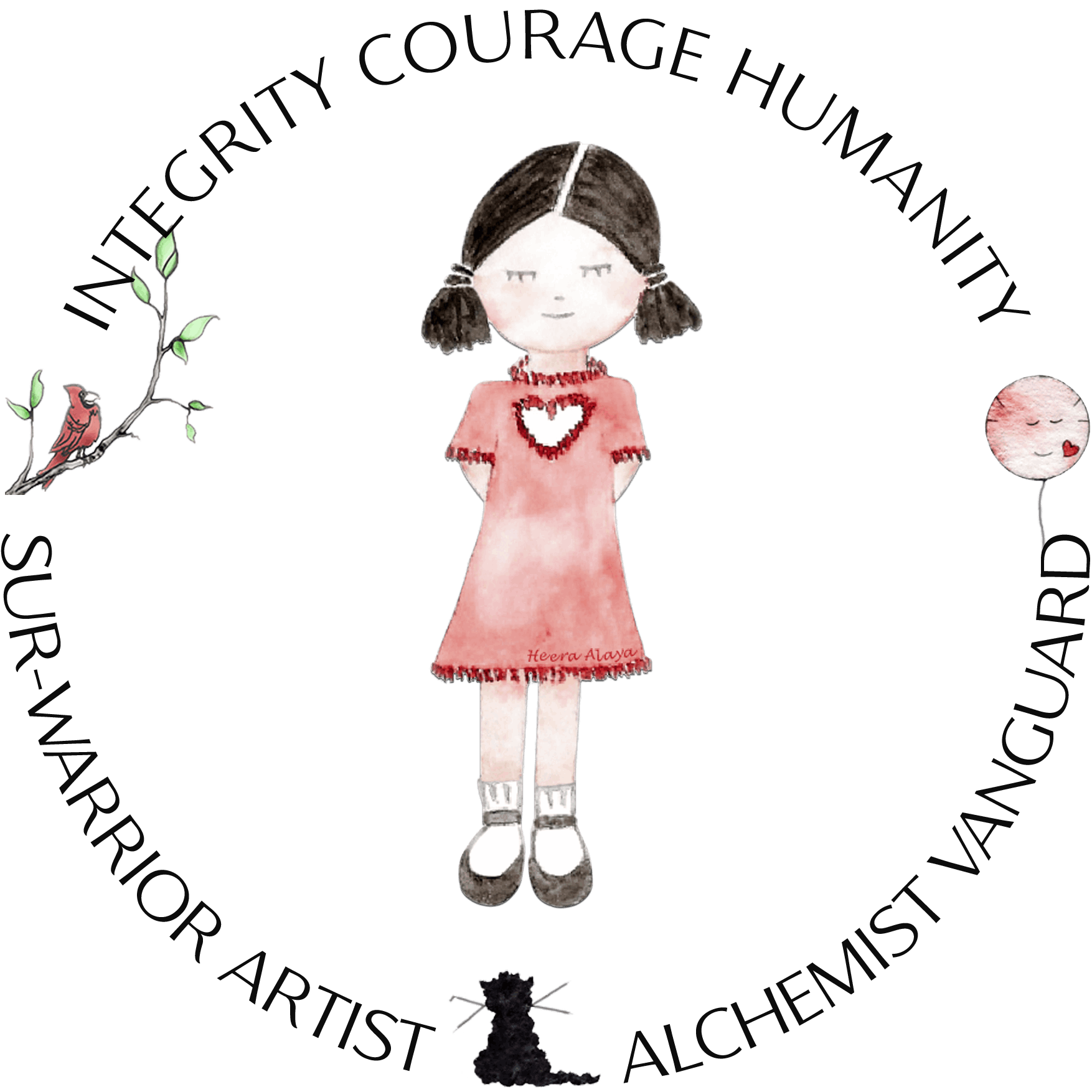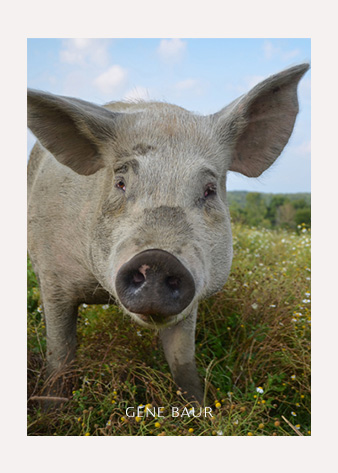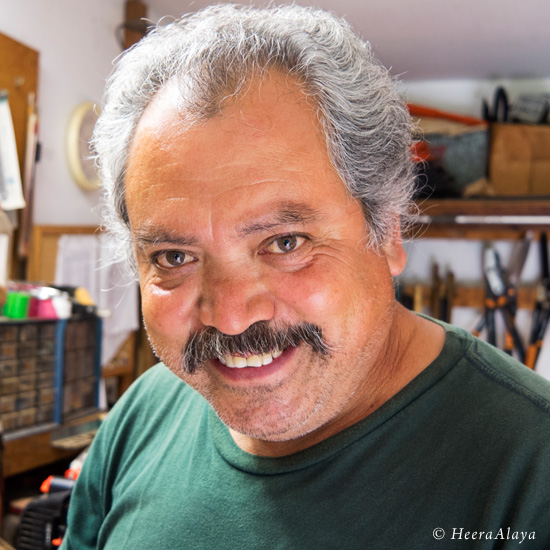
OPEN WINDOWS | Arteries
January 1st, 2021
“Every aspect of gardening is challenging,
but I like to garden. Gardening is not just for others
—I must appreciate what I do.”
FRANCESCO
Gardener, USA
Heera Alaya: Good morning, Francesco. What a glorious morning!
Francesco: Yes, it is. Good morning. How are you?
I look forward to talking with you in this beautiful setting; nature always makes me happy!
You start work very early, don’t you?
Yes. When I have to water the gardens in the summertime, I start very early in the morning, at 4:00 am.
What time do you wake up to be on the garden grounds at 4:00 am?
I wake up at 3:00 am. I have been walking up early all my life—when I was a little boy, I used to get up early to help my father in the field. My father was a government employee but also had a small farm. In Mexico, children have to help on the farm.
For how many years have you worked as a professional gardener?
25 years.
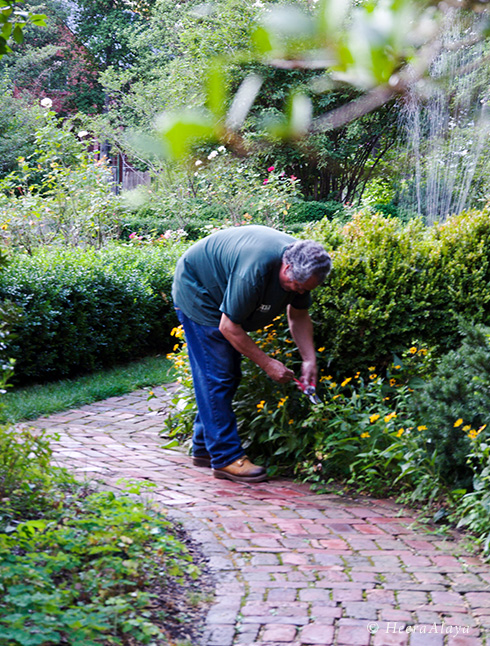
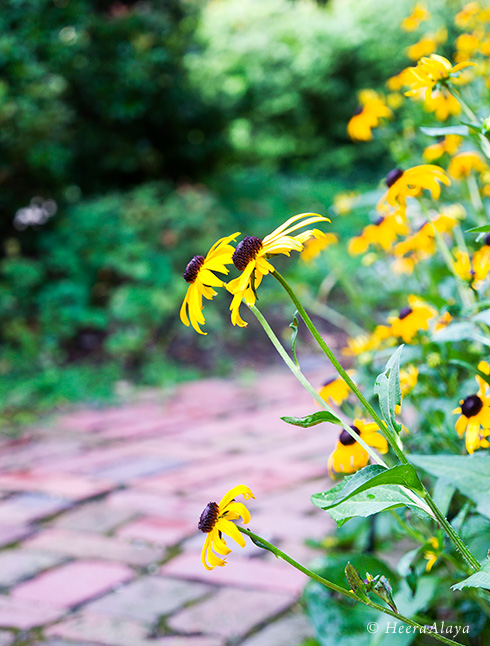
How many acres of garden do you maintain?
I take care of about five and a half acres, and this is excluding the streets [around the garden].
Who taught you to garden?
I learned gardening from many people. When I was a child, I learned on the farm. Then, my mother used to grow flowers, and I used to help her. As a teenager, my father would send me to work in the local parks in the summer. I worked in Durango’s main squares and started enjoying it [gardening]. When I first came to America, I did all kinds of jobs—working in restaurants, construction, everything. But I like working outside, in nature. I make less money now than in construction, but gardening satisfies me.
When did you move from Durango, Mexico, to America?
Almost 40 years back.
Francesco, are those Rabbits or Hares [I ask, pointing to our sprightly little friend and his sibling darting across the garden].
You notice all the animals; it’s good. It looks like a Conejo [Rabbit], but this one is a Lièvre [Hare].
How can you tell the difference between a Conejo and a Lièvre?
Conejo and Lièvre belong to the same family [of Leporidae], but Lièvre’s are skinny with long ears.
This Hare is small.
Yes. Rabbits are bigger. Foxes come here [to the garden] at night, and these lièvre’s are still alive because they are small and skinny, unlike the bigger Rabbits that don’t see well at night.
Does this garden get other visitors?
Yes. Often, deer come at night and leave early in the morning.
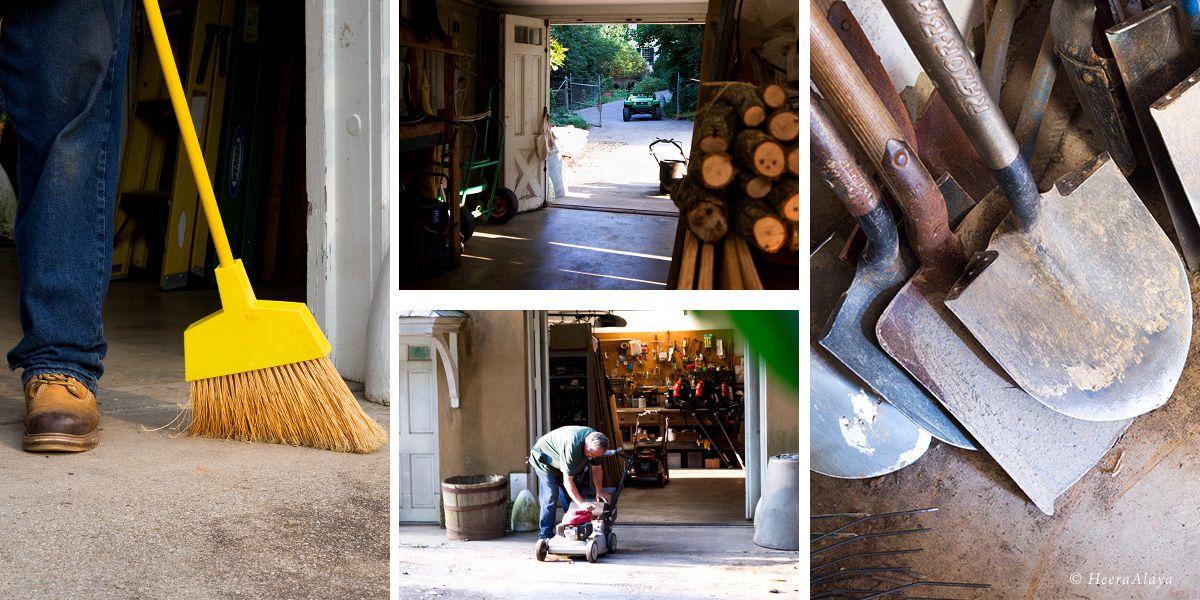
Francesco, I appreciate how you maintain the garden shed—it’s well-organised.
It’s about pride. I took care of my things from the time I was a child. Often, people borrow my tools and don’t put them back in their place. These adults are like children—grabbing and dumping. So I have to keep organising every day. Before I leave for the day, I try to clean up. The tools are part of me, and this shed in the garden is my little space, and they are my image. And my work is who I am.
And your work speaks for itself.
Thank you.
This shed is filled with an assortment of tools. Is there one tool you use more than the other?
All the tools are important, from the shears to the chainsaw used to cut down trees.
What are you doing [I ask as he reaches for a pair of shears]?
I am sharpening my pruning tools.
How often do you sharpen your pruning shears?
Every day. I use them [shears] every morning. Shears are my life.
What significance does your clipping shear hold?
My shears might look plain, but this is my living. I have had this one for 30 years. I have another one that I like; it’s new.
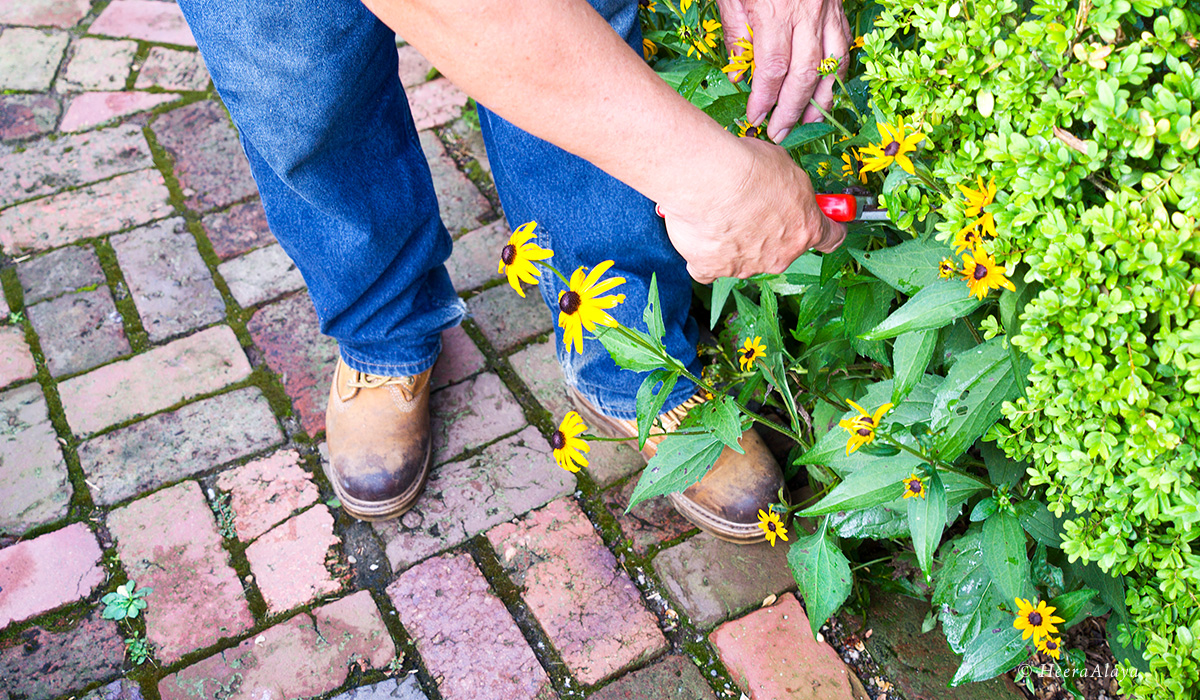
Do you like working alone?
I might be alone, but I am with plants. I feed the plants and nature so I don’t feel alone. Working alone gives me a lot of peace of mind; I can concentrate more on my work.
How do you start your day?
I like to walk around for a few minutes and breathe the fresh air (before the cars get on the roads). After that, in the summer, I have to lay down the hoses early in the morning, as it’s the best time to use the water.
Why is that [lay down hoses early in the morning]?
Water evaporates when consumed later. Plus, we have good water pressure in the morning because no one uses water.
It [morning water pressure] wouldn’t have crossed my mind. Thank you for educating me. How long do you have to run the water in the morning?
It depends. Some parts of the soil are hard, so the water takes more time to seep. The other parts are soft, so the water soaks in faster. I get an idea of how long I have to leave the water on in each area.
Do you have to water the plants in the winter?
No, I only water the indoor plants once a week.
Is gardening more manageable in a particular season?
There isn’t an easy season for gardening. Seasons have different life cycles—summer, spring, fall and winter. But yes, I prefer winter.
Why?
There are no mosquitoes in winter. During the other seasons, mosquitoes bite me all day long. And I don’t use repellent, as I might forget and rub my eyes.
How do you plan your day?
I have to prioritise my day, tending to those parts of the garden that people will see first.
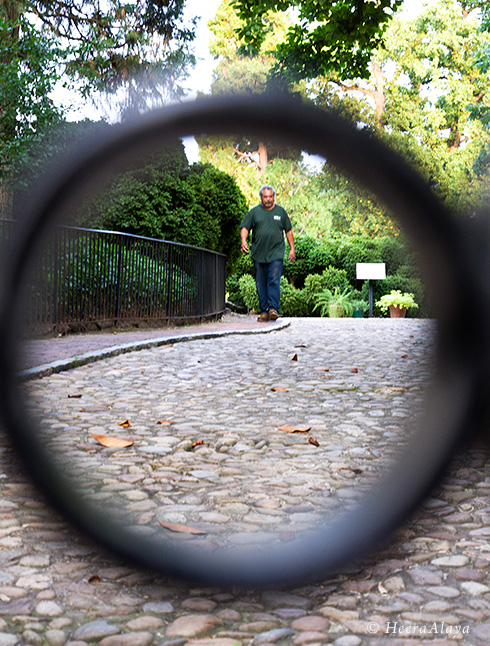
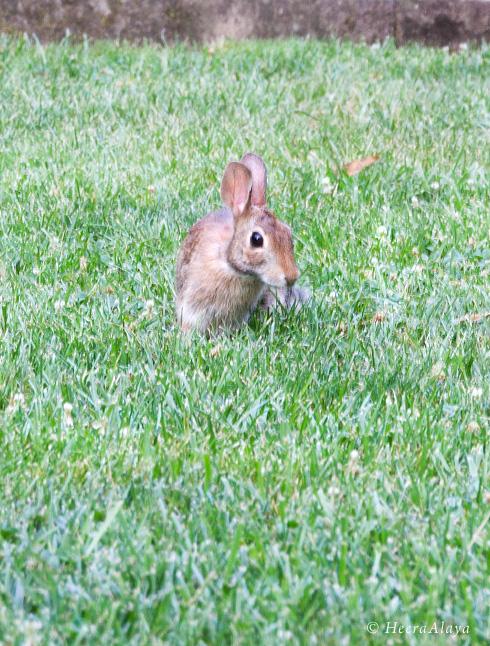
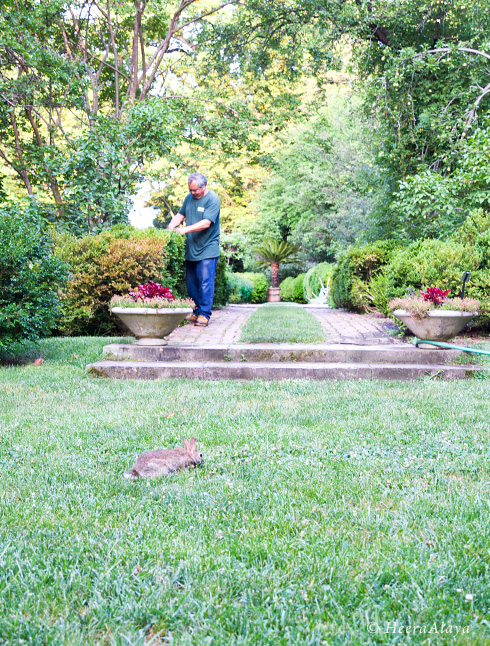
The harmonious symmetry of the groomed garden grounds is a treat for my soul.
The garden is about details, not big details, but many small details that people see. I might change how I prune a plant, which changes the whole appearance.
Is it challenging to garden on this large scale?
Every aspect of gardening is challenging, but I like to garden; I do it for myself. Gardening is not just for others—I must appreciate what I do. If I don’t enjoy my job, my life will be miserable.
That’s a lovely attitude.
What are a few things you must do consistently to take care of a garden?
Fertilising, weeding, pruning, raking and mowing, and if a big tree requires treatment, we call a specific company.
You work closely with nature. Is there something you notice that we don’t?
I notice that plants are alive, living things. When people look at a beautiful flower, they think it’s just a thing; people don’t realise the plant is alive.
What tiny creatures do you interact with while working on the garden grounds?
[Francesco interacts with] All types of birds—cardinals, blue jays, crows, like the ones making sounds now; rabbits, raccoons that come at night, possums too. Very often, deer enter the property (they jump the fence, spend the night and leave early in the morning). We have a lot of snakes, too, small garden snakes that are not poisonous.
What about insects and earthworms?
Oh, there are all kinds of them. Since insects are too small, we don’t see them, but the insect world is another world. We notice mosquitoes because they bite us, but there are a lot of insects. I see small insects because I work closely with nature.
Do you have a favourite plant, flower or tree?
All the plants are beautiful. I do like the big trees—they provide you with shade.
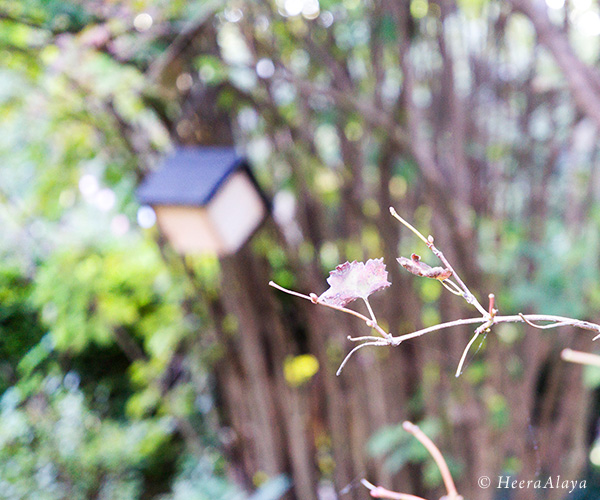
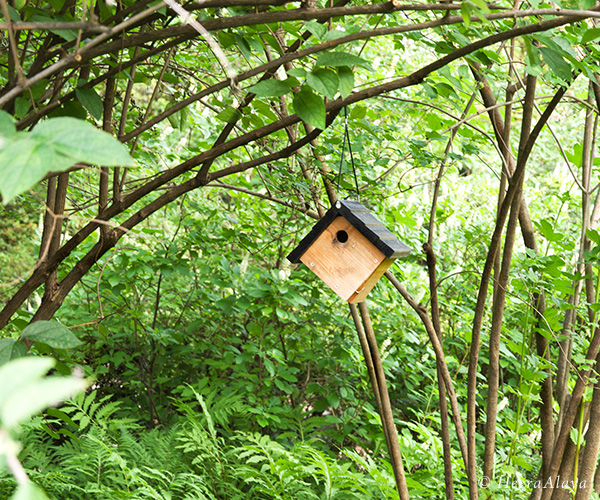
Do you talk to plants?
Yes, I do. I talk to plants like I would to a beautiful woman like you—tell plants how beautiful they are.
Thank you for the compliment.
You are welcome.
Plants feel your presence, so you have to feel theirs too. It’s like when you have houseplants; you have to care for them; if you don’t, they won’t grow. That’s why I don’t miss people in the garden surrounded by plants.
What motivates you?
You always appreciate my work. When people appreciate my work, it motivates me.
Francesco, I greatly value your gift for nurturing nature; it gives in abundance.
Tell me, why is nature important?
Because we are part of nature.
Well said, Francesco.
Thank you. Most people think they are different from nature. No, people are not disconnected from nature; people are disconnected from reality.
Why are gardens even more important today?
One day, the world will only be concrete cities, and you can’t plant anything on asphalt. So we need to go back to the connection we have in life—with nature.
What do you want people to experience when they visit gardens?
Many people visit the gardens but go through them quickly; they don’t enjoy it. You can go to a park, but it’s not the same as a garden. I want people to explore gardens like they are in paradise—to see, sit, read, and connect with nature. The only part of the world where we are equal is in nature—it doesn’t discriminate between rich and poor people.
